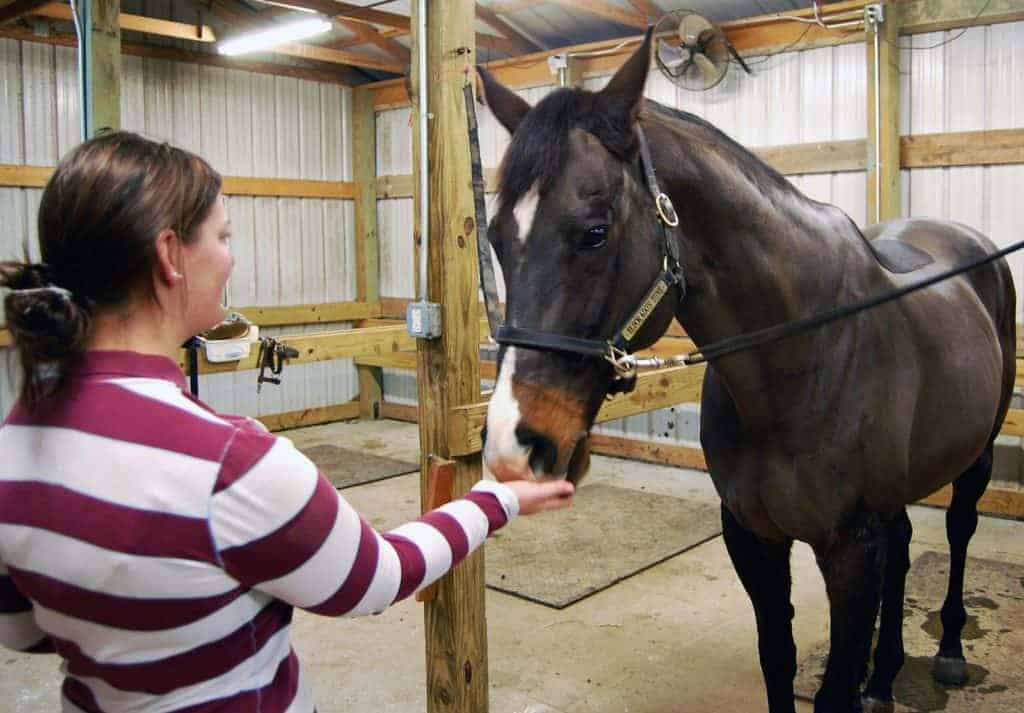
Slobbers in Horses
Slobbers often results from horses ingesting a compound (slaframine) produced by a fungus on legumes such as clover.
Proper feeding practices for foals, adult horses, and older horses

Slobbers often results from horses ingesting a compound (slaframine) produced by a fungus on legumes such as clover.
The symposium featured research on equine nutrition, exercise physiology, reproduction, management, and more.

The topics on the agenda are related to pasture renovation and establishment and summer and fall grazing options.

Rutgers pasture experts will discuss grazing research comparing continuous and rotational grazing systems and more.

Horses might someday be able to consume plant-based products designed to prevent and fight infections, researchers say.

Readers share some of the strange things that their horse have consumed.

Here’s how to design your dream equestrian setup–in this case, on a small acreage.

Alayne Blickle, with Horses for Clean Water, tells you how to protect your horses by storing hay at a safe distance.

Of the 804 respondents, 429 said they give their horses electrolytes year-round, after hard work, or during the summer.

Manage pastures and horses’ grazing times carefully to help reduce the risk of laminitis, a painful hoof condition.

Ulcers were more prevalent in domestic horses than feral ones, but the latter group wasn’t immune to these lesions.

This potentially deadly condition affects grazing horses. Learn about its clinical signs, treatments, and prognosis.

Good stewardship and management practices will help ensure you get the most benefit from an herbicide application.

Laurie Lawrence, PhD, was recognized for her professional achievements in the equine industry.

Drought-related toxicity in horses is rare but typically has serious consequences if it occurs.

Livestock can damage fragile waterways. Horses for Clean Water’s Alayne Blickle shares how to keep horses off yours.
Stay on top of the most recent Horse Health news with
"*" indicates required fields